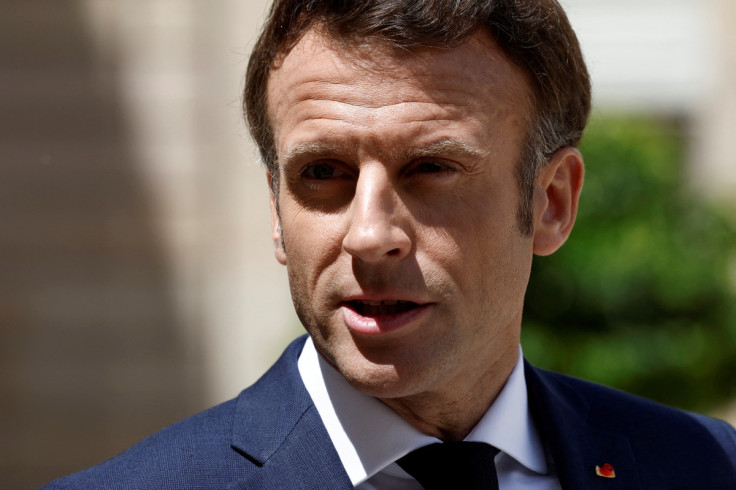Emmanuel Macron faces Xi Jinping alongside European Commission President
The Head of China Research at the French Institute of International Relations says that Macron's hopes of China acting as mediator in Ukraine are unrealistic.

The President of France, Emmanuel Macron, has faced a tough set of diplomatic issues on his visit to China from the 4th to the 8th of April. Also accompanying Macron on his visit is the President of the European Commission, Ursula von der Leyen, who made an authoritative speech on the EU's approach to China on the 30th of March.
Marc Julienne, Head of China Research at the French Institute of International Relations in Paris, explained how her presence alongside the French President reflects the placing of the bilateral relationship between France and China within a European framework.
According to Julienne, the approaches of Macron and the EU towards China differ. On the one hand, Macron favours a "conciliatory" approach towards diplomatic relations with Beijing. This contrasts with the approach of the European Commission president and the EU. In her speech, china is portrayed as a "systemic rival" to the EU, more so than a "partner" or "competitor" according to Julienne.
However, the two European leaders agree on the need to reduce the risk of European dependence on the Chinese economy. Accordingly, "de-risking" is Europe's equivalent to the more far-reaching US policy of "decoupling." The US objective of decoupling is to reduce trade dependence on China because of concerns that Beijing could use interdependence against US interests.
However, Ms. von der Leyen stated in her speech that "it is neither viable – nor in Europe's interest – to decouple from China." Therefore, with China responsible for 20% of goods imports and 9% of goods exports, it is not the intention of Europe to "cut economic, societal, political or scientific ties." Similarly, Macron has emphasised that whilst de-risking is an important objective, it should not entail trade separation from China.
Underlying security tensions
However, whilst the president of the EU commission might be intent on ensuring competition and partnership with China where possible (for example, on issues such as climate change), from a realist perspective which focuses on the material balance of power within the global international system, there are underlying diplomatic tensions between China and the West.
For example, also of note in recent diplomatic news is a meeting between the leaders of the US, Britain, and Australia who discussed the 'AUKUS' pact, an agreement to supply Australia with US nuclear submarine technology, an objective implicitly motivated by security concerns over China.
The announcement of AUKUS angered France, who had previously agreed to sell Australia conventional submarines. Naturally, China's response to AUKUS has been hostile, accusing the alliance of operating irresponsibly with a "cold war mentality."
Furthermore, earlier this March, the UK announced its intentions to increase military spending in response to the challenge posed by China and Russia.
China is unlikely to act as a mediator in the Ukraine war
Moving back to the French President's visit to China, Julienne explains Macron's hopes that Beijing will play a mediating role in relation to the Ukraine war. In November 2022, Macron stated that "China can play, I am convinced, a more important mediating role alongside us in the coming months."
However, this position fails to understand China's foreign policy interests in relation to the Ukraine war. According to Julienne, instead of seeking mediation from China, a more realistic objective is for Macron to persuade Xi not to provide military support for Russia. Moreover, due to the close relationship between China and Russia, even this is potentially unfeasible according to Julienne.
Julienne explains that China's approach to Ukraine is two-faced. China officially supports peace in Ukraine but makes no proactive steps that allow for successful peace talks.
On the contrary, instead of neutrality, China backs Russia politically, but not in a military capacity. For example, Chinese political support for Russia was represented by Xi's visit to Moscow in March. The recent meeting between Xi and Putin resulted in the signing of an agreement moving China and Russia into a new period of cooperation.
This means that China wishes to act in ideological unison with Russia against the US, its main great power competitor, even if it has no specific military interest in the battle of force currently raging in Ukraine. It is also important for China's economy that they avoid sanctions, which limits the scope for more direct support of Putin.
Instability in the Taiwan Strait is a risk to Europe
Whilst the stability of the Taiwan Strait might be considered by Beijing to be a Chinese issue (hence, not one for the international community), it is of great significance for Europe and France. That is the message Macron would be wise to convey to Xi Jinping according to Julienne.
Crucially, if stability were to break down in the Taiwan Strait, whatever China's view of territorial legitimacy in the area, European states would be motivated to coordinate a response. There are two reasons France and Europe should be actively concerned over security in China's backyard.
Firstly, at a material level, instability in the Taiwan Strait would have knock-on effects on European trade, with French and European companies possessing economic interests in the region. Secondly, at the reputational level, Julienne explains how France has identified itself as Indo-Pacific power, meaning that it needs to speak out on security concerns in the Taiwan Strait to live up to this mantra.
© Copyright IBTimes 2025. All rights reserved.





















